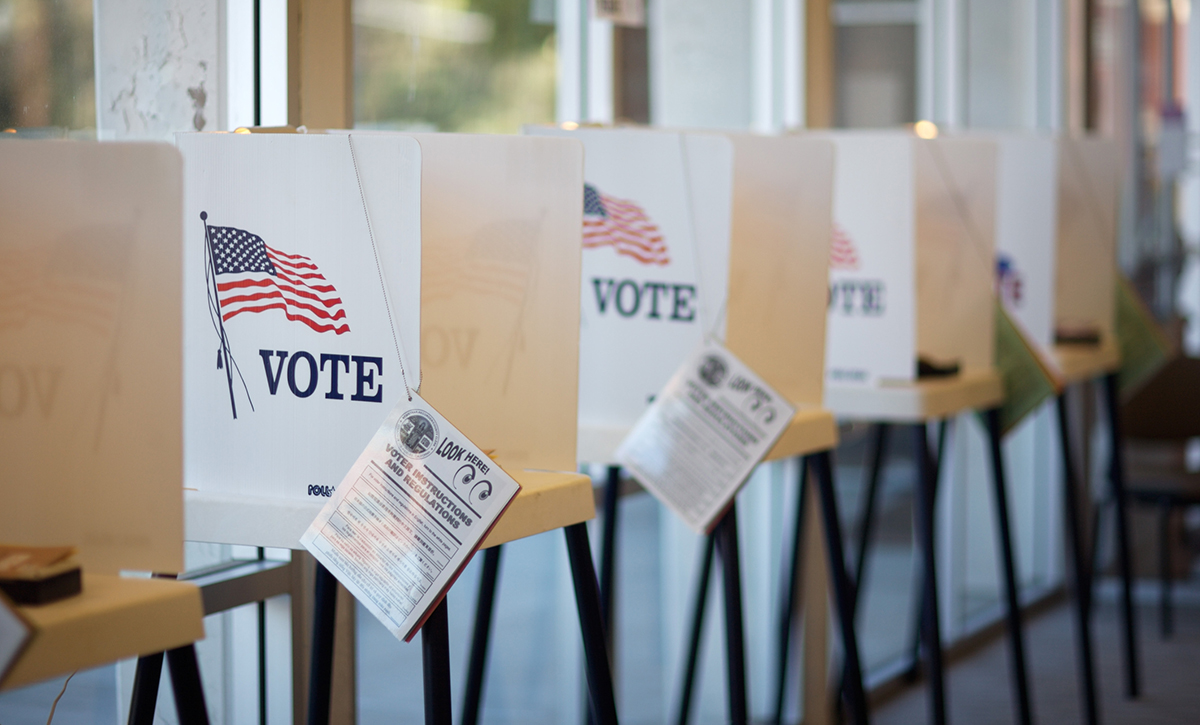With COVID Aid Pouring in, School Funding Ballot Initiatives Scarce This Year
Education issues may determine who wins top political offices in November. But we're not seeing the usual raft of school-related ballot initiatives

Get stories like these delivered straight to your inbox. Sign up for The 74 Newsletter
If polling is any indication, the issue of education is driving voters to choose sides in a way rarely seen before. With close margins in both the House of Representatives and the Senate, and with gubernatorial candidates emphasizing their positions on school issues, it’s possible that what has been happening — or not happening — in the classroom will determine the composition of many of the nation’s top political offices.
What we aren’t seeing is the usual plethora of education-related ballot initiatives. Nor are there more than a couple related to labor unions.
Massachusetts is the one state where there is a large-scale, generously funded battle over school funding. Question 1 would place an additional 4% tax on incomes above $1 million, with the revenues to be used for “quality public education and affordable public colleges and universities, and for the repair and maintenance of roads, bridges and public transportation.”
Supporters have raised more than $10.6 million, with virtually all of it coming from teachers unions: almost $4.3 million from the Massachusetts Teachers Association, $4 million from the National Education Association, $750,000 from American Federation of Teachers Massachusetts and $300,000 from the AFT. The state chapter of the Service Employees International Union chipped in another $410,000.
Opponents have raised more than $9 million, with business interests such as construction companies, realtors and manufacturers leading the way with $1 million each.
“The super-rich CEOs and wealthy investors funding the opposition to Question 1 are spending millions trying to scare people because they don’t want to pay their fair share in taxes,” said Lillian Lanier, field director for the Yes on 1 campaign.
Labor unions are exempt from all state and federal income taxes.
There is a ballot initiative in California that would raise income taxes on those earning more than $2 million, but the state teachers union is taking the unusual stance of opposing it.
The revenue generated from Proposition 30 would fund “zero-emission vehicle subsidies, zero-emission vehicle infrastructure, such as electric vehicle charging stations; and wildfire suppression and prevention programs.” It is supported by the state Democratic Party, environmental groups and several private-sector unions, including Unite HERE.
But Gov. Gavin Newsom is opposed, and is even starring in campaign ads against the initiative, calling the tax a “Trojan horse” to benefit corporate interests.
That’s because $25 million of the initiative’s funding comes from ride-share company Lyft. California has decreed that ride-share companies must use zero-emissions vehicles for 90% of the miles their drivers travel by 2030. The subsidies would ease the way for Lyft drivers to purchase those vehicles.
The state Republican Party and chamber of commerce joined Newsom in opposition due to their general anti-tax principles, making for strange bedfellows.
Especially since the California Teachers Association is also against it. But why? Apparently, the union sees the initiative as a way to avoid the state’s school funding guarantees. Tax revenues in California usually go into the state’s general fund, about 40% of which is mandated to go to K-12 education. Schools would get none of the funds from the initiative’s proposed tax hike.
The union stands on more traditional ground with its support for Proposition 28, which requires school districts to spend a minimum of 1% of K-12 funding on arts and music education.
Two labor-related measures will also appear on state ballots in November. They go in opposite directions.
Tennessee Constitutional Amendment 1 would enshrine the state’s right-to-work law in the constitution, making it illegal to require union membership as a condition of employment.
Illinois Amendment 1 would make collective bargaining a constitutional right. It is supported by a host of unions, including the Illinois Federation of Teachers and the Chicago Teachers Union.
While we are experiencing a breather on school funding ballot initiatives, they will likely reappear as federal and state COVID relief funding starts to dissipate. The education establishment will seek new sources of revenue to maintain current spending levels and avoid layoffs. Enjoy the reprieve while it lasts.
Mike Antonucci’s Union Report appears most Wednesdays; see the full archive.
Get stories like these delivered straight to your inbox. Sign up for The 74 Newsletter

;)